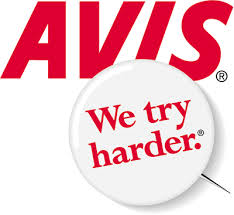These days, credibility is often in short supply. NBC’s Brian Williams’ standing with viewers took a big hit when it was revealed that, despite his earlier claim, the helicopter he was riding in didn’t take one from an RPG. We have all become too accustomed to learning that something we’ve heard from someone we trusted just isn’t true.
Research by Duke University behavioral economist Dan Ariely found that many people are willing to fib for their own benefit– but just a little. And when people we believe in tell us less than the whole truth, it’s not always an attempt to maliciously deceive. An NBC staffer, responding to questions about Brian Williams, told The Washington Post, “He’s a
 great storyteller. But sometimes storytellers embellish.” But, as the Williams case illustrates, the habit of stretching the truth a bit too far can devastate your reputation. As legendary investor Warren Buffet put it,
great storyteller. But sometimes storytellers embellish.” But, as the Williams case illustrates, the habit of stretching the truth a bit too far can devastate your reputation. As legendary investor Warren Buffet put it,
It takes 20 years to build a reputation and five minutes to ruin it. If you think about that, you’ll do things differently.
A good name as a trustworthy, expert professional is one of the most valuable assets you can have.
Years of research in persuasion psychology explained by eminent social psychologist Dr. Elliot Aronson reveals that to effectively persuade others, you must be viewed as both expert in the subject and trustworthy. Salespeople, attorneys and marketers may know their facts, but unless their audience trusts them they will have a hard time winning over clients, consumers or juries.
People hear so many stories about swindlers and their scams that a straight shooter who knows what they’re talking about is truly refreshing. People seek to do business with someone like that. How can professionals – salespeople, marketers, and attorneys whose professions are sometimes viewed skeptically by the public – build and keep vital good reputations? And how can they assure that clients, juries and audiences recognize them as the credible sources they are?
The most important factor
 Socrates said, “The way to gain a good reputation is to endeavor to be what you desire to appear.” So, when DDB copywriter Paula Green came up with the iconic “We Try Harder” tagline for Avis Rent-a-Car, the agency explained to Avis executives that they had to live up to what they were telling consumers. Avis employees really had to try harder and give customers what they wanted. They did. Advertising Age relates:
Socrates said, “The way to gain a good reputation is to endeavor to be what you desire to appear.” So, when DDB copywriter Paula Green came up with the iconic “We Try Harder” tagline for Avis Rent-a-Car, the agency explained to Avis executives that they had to live up to what they were telling consumers. Avis employees really had to try harder and give customers what they wanted. They did. Advertising Age relates:
It was a huge success for Avis. In a matter of a single year, that campaign reversed the company’s fortunes, helping it to go from losing $3.2 million to turning a profit of $1.2 million for the first time in 13 years.
Although this campaign is often cited as an example of great advertising, it is also a case study in the benefits of making consumers a promise – and then keeping it. Making exaggerated claims for products and services is common. It can result in short-term success. But there are few better ways to ruin your good name than promising things you do not deliver.
Should you ever lie to clients?
No. True, lying can help you make a sale. But once your customer realizes that you’ve lied you will lose credibility, and they’ll often tell others. Even if lying works in the short run, once the lie is discovered your ability to persuade will nosedive. And if the falsehood was about something significant, you will lose a customer and may well make a vocal enemy.
 Deceiving people may injure them. Years ago, during my 25 year sales career, I went to a well-known dealer and found what I thought was a great deal on a new car. Left over from the previous model year, it had less than 80 miles on the odometer. The salesman offered me a full 1/3 off the sticker price. When he told me the car was brand new and had only been used as a demo, I asked, “Why are you giving me so much money off?” “We have to clear the lot for a new shipment,” he explained, “the boss said to do whatever it takes to sell these cars now.”
Deceiving people may injure them. Years ago, during my 25 year sales career, I went to a well-known dealer and found what I thought was a great deal on a new car. Left over from the previous model year, it had less than 80 miles on the odometer. The salesman offered me a full 1/3 off the sticker price. When he told me the car was brand new and had only been used as a demo, I asked, “Why are you giving me so much money off?” “We have to clear the lot for a new shipment,” he explained, “the boss said to do whatever it takes to sell these cars now.”
I bought that car because it had a great reliability rating, a full warranty and a terrific price. It sounded too good to be true. It was. The manufacturer was dumping them. Its high crash-test rating turned out to be for frontal impacts only. My new car lacked reinforced doors, which a new Federal law mandated. And when a speeding full-size SUV broadsided me, I quickly learned the truth.
 I suffered 6 broken bones and a ruptured spleen. I nearly died in the emergency room. And none of it had to happen. If the salesman had told me the truth I would not have bought that car. But, because his candor would have built trust and credibility, I would likely have bought another, more expensive model from him. My injuries have healed, but as research predicted, my feelings about that dealership have not.
I suffered 6 broken bones and a ruptured spleen. I nearly died in the emergency room. And none of it had to happen. If the salesman had told me the truth I would not have bought that car. But, because his candor would have built trust and credibility, I would likely have bought another, more expensive model from him. My injuries have healed, but as research predicted, my feelings about that dealership have not.
I have told many people, including their competitor, about my bad experience.
Manufacturing Credibility
Scientific research shows that even someone who has lost the trust of their audience can regain it. Studies also reveal how to effectively deal with weaknesses in your product or argument, tell the truth, and still make the sale. Watch for Part Two of this series.
Larry Rondeau’s marketing campaigns have achieved ROI of 16.5 to 1. The psychology-based sales techniques he teaches have improved sales closing rates by as much as 83%. If you’d like to discuss an opportunity in marketing, sales, training or copy/content writing please email him at larryrondeau@gmail.com.

